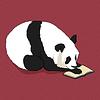Take a photo of a barcode or cover
challenging
dark
informative
inspiring
slow-paced
Plot or Character Driven:
Character
Strong character development:
Yes
Loveable characters:
No
Diverse cast of characters:
No
Flaws of characters a main focus:
No
While this was a fascinating dive into seventh century Chinese culture, it was not nearly as much of a traditional novel as I was expecting and sometimes lagged in the descriptions of processions and palaces.
Moderate: Pedophilia, Sexual content, Suicide, Murder
This was an enigmatic and original piece of work, allowing a historical figure, the Empress Wu to tell her own story, all through her own perspective, including her birth, childhood the many twists and reversals of her climb to power, the bitter clinging to that power and even what happens after her death.
About the first half of the book is about her dogged determination to thrive against all the odds- as a cast down nobody sent to the provinces to live with unsympathetic relatives, she has rice mixed with stones and rotten vegetables to eat. From this inauspicious beginning, she becomes firstly a nonentity in the vast "gynaceum" (similar to a harem) of the emperor, then a lover of someone close to the emperor and so on...social climbing by a combination of intelligence, erudition, courage, horsemanship and of course sex. There is a lot of sex in the book. Emperors have four wives, many concubines and a whole gynaceum of "virgins" as well as the odd young boy dressed as a monk or eunuch. People who are not emperors seem to also take many lovers, generally starting from the age of about 11, with partnerships cutting across age and gender (and occasionally class) and being exploitative rather than mutual (although there is complexity around this and at times opportunity for social advancement, which "Heavenlight" capitalises on at every turn).
The intrigues and sudden reversals happen in a gem enrusted, network of opulent palaces and gardens but also in a bloodbath of betrayal, denouncement, torture and violent death. There is much about this book that is unpleasant and the reader soon sees that Heavenlight is far from an innocent- for all her moral high-ground early on against the schemings of wives and concubines. There seems to be a general air of hypocrisy in her attitudes to people who act similar to her for similar reasons, but in between her outrage we see a world where women's power is very limited and their position extremely precarious (this is also largely true for men, but to a lesser extreme). Most of the thousands of "virgins" in the gynaceum will never marry, bear children and have no real career either. Friendships in their are tainted with rivalry and suspicion (although sexual pairings are rife).
I found the polyamorous and bisexual norm of the book interesting but was a bit disappointed that there was still an implicit normalisation of heterosexuality in the way Wu's (Heavenlight's) toxic affairs with women versus her healing and even age-reversing liasons with men. Another problem for me was the way the book (already replete with very detailed description) slows down to a crawl through lists, descriptions and great deeds (building things, consecrating things) once she ascends to the throne. It was lush, picturesque drifting into inevitable decline and death while nothing much happens.
But there was a lot of insight, into a figure I had never heard of- a sympathetic summing up at the end of the ways she overcame the constraints of gender and the ways she did not manage to. I don't suppose we were meant to love an Empress that was more god than human (the way religion is depicted as "true" for the people in the book was one of its epistemological strengths) but I was interested even when I was repelled by the extreme violence and cruelty and the fairly dark depiction of human nature.
About the first half of the book is about her dogged determination to thrive against all the odds- as a cast down nobody sent to the provinces to live with unsympathetic relatives, she has rice mixed with stones and rotten vegetables to eat. From this inauspicious beginning, she becomes firstly a nonentity in the vast "gynaceum" (similar to a harem) of the emperor, then a lover of someone close to the emperor and so on...social climbing by a combination of intelligence, erudition, courage, horsemanship and of course sex. There is a lot of sex in the book. Emperors have four wives, many concubines and a whole gynaceum of "virgins" as well as the odd young boy dressed as a monk or eunuch. People who are not emperors seem to also take many lovers, generally starting from the age of about 11, with partnerships cutting across age and gender (and occasionally class) and being exploitative rather than mutual (although there is complexity around this and at times opportunity for social advancement, which "Heavenlight" capitalises on at every turn).
The intrigues and sudden reversals happen in a gem enrusted, network of opulent palaces and gardens but also in a bloodbath of betrayal, denouncement, torture and violent death. There is much about this book that is unpleasant and the reader soon sees that Heavenlight is far from an innocent- for all her moral high-ground early on against the schemings of wives and concubines. There seems to be a general air of hypocrisy in her attitudes to people who act similar to her for similar reasons, but in between her outrage we see a world where women's power is very limited and their position extremely precarious (this is also largely true for men, but to a lesser extreme). Most of the thousands of "virgins" in the gynaceum will never marry, bear children and have no real career either. Friendships in their are tainted with rivalry and suspicion (although sexual pairings are rife).
I found the polyamorous and bisexual norm of the book interesting but was a bit disappointed that there was still an implicit normalisation of heterosexuality in the way Wu's (Heavenlight's) toxic affairs with women versus her healing and even age-reversing liasons with men. Another problem for me was the way the book (already replete with very detailed description) slows down to a crawl through lists, descriptions and great deeds (building things, consecrating things) once she ascends to the throne. It was lush, picturesque drifting into inevitable decline and death while nothing much happens.
But there was a lot of insight, into a figure I had never heard of- a sympathetic summing up at the end of the ways she overcame the constraints of gender and the ways she did not manage to. I don't suppose we were meant to love an Empress that was more god than human (the way religion is depicted as "true" for the people in the book was one of its epistemological strengths) but I was interested even when I was repelled by the extreme violence and cruelty and the fairly dark depiction of human nature.
I'm giving up on this one 100 pages in. I have an old ARC of this book (obviously old - the book was published in 2003) and so I expect some typos and the like. But there have been a noticeable number of times the wrong word was used ("peel of laughter," for example) and it's just driven me crazy. The writing is not nearly good enough to make up for the editing problems. Repetition of words in a sentence ("all of them are all like beasts of burden....") and other mistakes just pull me right out of the story.
It's a shame because I'm sure the story is very interesting, but the way its told here (even aside from the mistakes) just isn't compelling enough to keep me reading.
It's a shame because I'm sure the story is very interesting, but the way its told here (even aside from the mistakes) just isn't compelling enough to keep me reading.
i really liked the book. probably because of how it was translated into english & not actually .. written in english. makes a huge diff to me. :D
was really surprised by some scenes. like, "wtf??" surprised. but still. really liked it.
was really surprised by some scenes. like, "wtf??" surprised. but still. really liked it.
Conducătorii, chiar asemănaţi cu zeii, tot oameni rămân.
Pe atunci se făcea un control al populaţiei foarte strâns cu atâtea războaie, ajutări de „sinucideri” şi execuţii.
Pe atunci se făcea un control al populaţiei foarte strâns cu atâtea războaie, ajutări de „sinucideri” şi execuţii.
Just didn’t jive with it. Didn’t make me very excited to get further beyond just wanting to know more about Wu Zeitan.
Shan Sa's novel Empress (Impératrice in the original French) is a lyrical and panoramic imagining of the life of the only woman to ever rule in China as Empress Regnant, the Empress Wu Zetian. Born to a wool merchant and his second wife, the young Zetian was noticed for her intelligence and beauty at an early age and selected to be one of the Emperor's hundreds of concubines.
Starting from the limited record that remains about the Empress - much of it preserved (and hence somewhat suspect) by either her own enemies or enemies of the later Tang Dynasty emperors, whose ancestor she was - Shan Sa has crafted a detailed and largely sympathetic story of a brave and intelligent woman who rose to rule an empire in the power vacuum resulting from the advancing age and illness of one emperor and the diffidence of another.
Yet in producing a sympathetic portrait, author Shan Sa does not sweep the treachery and violence of the era under the carpet, not does she imagine Wu Zetian to be innocent of plots and bloodshed. Instead, she gives us a picture of an imperial court in which both the women of the imperial household and the officials of the imperial court, to say nothing of the children and other close relatives of the emperor and his wives and preferred concubines, constantly manoeuvre for position, power, and imperial favour, and are not above scheming, seducing, entrapping, murdering, or framing their rivals in order to gain advancement. In such an environment, much of the atrocity laid at Wu Zetian's feet can be seen as part of a struggle to survive, and the rest as invention aimed at tarnishing her reputation and memory.
As well, the fact that she did overthrow order by usurping the throne, which should have gone to her son at the death of the Emperor, and by being a woman who ruled as a man, would be more than enough to brand her as an unnatural creature. There is certainly more than a touch of misogyny in the way she has been vilified:
Explaining why the empress was so reviled, then, means acknowledging the double standard that existed–and still exists–when it comes to assessing male and female rulers. Wu probably did dispose of several members of her own family, and she ordered the deaths of a number of probably innocent ministers and bureaucrats. She also dealt ruthlessly with a succession of rivals, promoted members of her own family to high office, succumbed repeatedly to favoritism, and, in her old age, maintained what amounted to a harem of virile young men. None of these actions, though, would have attracted criticism had she been a man. Every Chinese emperor had concubines, and most had favorites; few came to power, or stayed there, without the use of violence. Taizong forced the abdication of his own father and disposed of two older brothers in hand-to-hand combat before seizing the throne. (http://www.smithsonianmag.com/history/the-demonization-of-empress-wu-20743091/?no-ist)
One thing that history does seem to agree on is that she was an able and effective ruler who, by the standards of the time, tried to serve her people and improve the overall strength of the empire.
In Empress, Shan Sa brings this unprecedented female emperor to life and gives context and balance to the stories still told about her.
Starting from the limited record that remains about the Empress - much of it preserved (and hence somewhat suspect) by either her own enemies or enemies of the later Tang Dynasty emperors, whose ancestor she was - Shan Sa has crafted a detailed and largely sympathetic story of a brave and intelligent woman who rose to rule an empire in the power vacuum resulting from the advancing age and illness of one emperor and the diffidence of another.
Yet in producing a sympathetic portrait, author Shan Sa does not sweep the treachery and violence of the era under the carpet, not does she imagine Wu Zetian to be innocent of plots and bloodshed. Instead, she gives us a picture of an imperial court in which both the women of the imperial household and the officials of the imperial court, to say nothing of the children and other close relatives of the emperor and his wives and preferred concubines, constantly manoeuvre for position, power, and imperial favour, and are not above scheming, seducing, entrapping, murdering, or framing their rivals in order to gain advancement. In such an environment, much of the atrocity laid at Wu Zetian's feet can be seen as part of a struggle to survive, and the rest as invention aimed at tarnishing her reputation and memory.
As well, the fact that she did overthrow order by usurping the throne, which should have gone to her son at the death of the Emperor, and by being a woman who ruled as a man, would be more than enough to brand her as an unnatural creature. There is certainly more than a touch of misogyny in the way she has been vilified:
Explaining why the empress was so reviled, then, means acknowledging the double standard that existed–and still exists–when it comes to assessing male and female rulers. Wu probably did dispose of several members of her own family, and she ordered the deaths of a number of probably innocent ministers and bureaucrats. She also dealt ruthlessly with a succession of rivals, promoted members of her own family to high office, succumbed repeatedly to favoritism, and, in her old age, maintained what amounted to a harem of virile young men. None of these actions, though, would have attracted criticism had she been a man. Every Chinese emperor had concubines, and most had favorites; few came to power, or stayed there, without the use of violence. Taizong forced the abdication of his own father and disposed of two older brothers in hand-to-hand combat before seizing the throne. (http://www.smithsonianmag.com/history/the-demonization-of-empress-wu-20743091/?no-ist)
One thing that history does seem to agree on is that she was an able and effective ruler who, by the standards of the time, tried to serve her people and improve the overall strength of the empire.
In Empress, Shan Sa brings this unprecedented female emperor to life and gives context and balance to the stories still told about her.
Empress Wu tells the reader about her childhood in one of China’s impoverished but still noble clans, growing up a concubine of the emperor, and finally of becoming empress herself. This is the story of a bird locked in a golden cage, of lavish surroundings that fail to mask captivity, of the boredom and murderous competition of a small city of women all fighting to win the gaze of a single man.
The novel’s protagonist, Empress Wu (or Heavenlight), is a fairly complex character who is not always particularly likeable. She is in survival mode; even when she rules as empress, she must contend with assassination attempts and the ever present threat of failing health. This is a novel about a woman whose entire being is tied to the approval of men, and the suddenness with which fortunes can change through factors entirely out of her control.
Sa did an excellent job of painting the picture of a world that is at once rich and beautiful, yet brutal and cruel. I found it to be an interesting and well-written novel. It’s an easy read, although not always a pleasant one. This is a great novel to read if you happen to come across it, though I wouldn’t bother going too far out of your way to get it.
The novel’s protagonist, Empress Wu (or Heavenlight), is a fairly complex character who is not always particularly likeable. She is in survival mode; even when she rules as empress, she must contend with assassination attempts and the ever present threat of failing health. This is a novel about a woman whose entire being is tied to the approval of men, and the suddenness with which fortunes can change through factors entirely out of her control.
Sa did an excellent job of painting the picture of a world that is at once rich and beautiful, yet brutal and cruel. I found it to be an interesting and well-written novel. It’s an easy read, although not always a pleasant one. This is a great novel to read if you happen to come across it, though I wouldn’t bother going too far out of your way to get it.
Beautifully written book with a fascinating character but rather cold and distant.
I enjoyed the politics and the way her mind worked.
I enjoyed the politics and the way her mind worked.
Loved it - such a fascinating story and really well researched. I do think Shan Sa glossed over a lot of the negative parts of Empress Wu's reign... but totally forgivable considering most other books about her drone on about it and this was told through her eyes.







